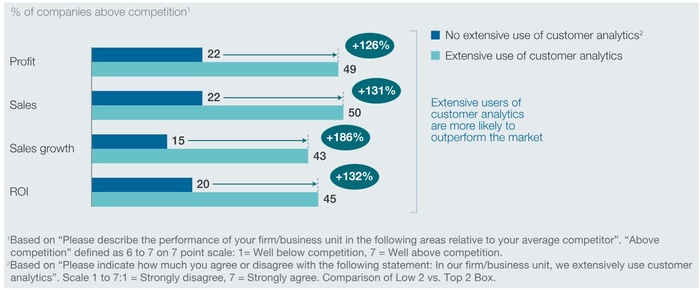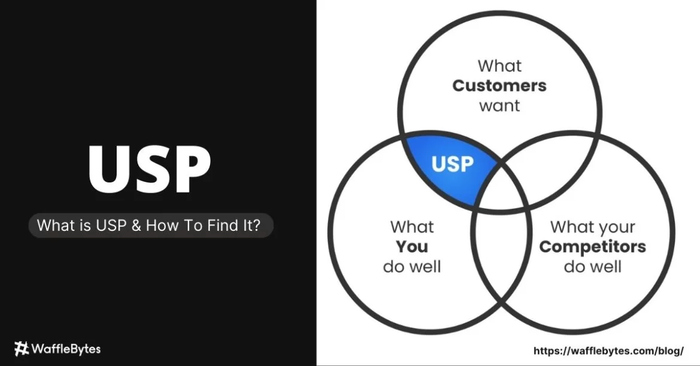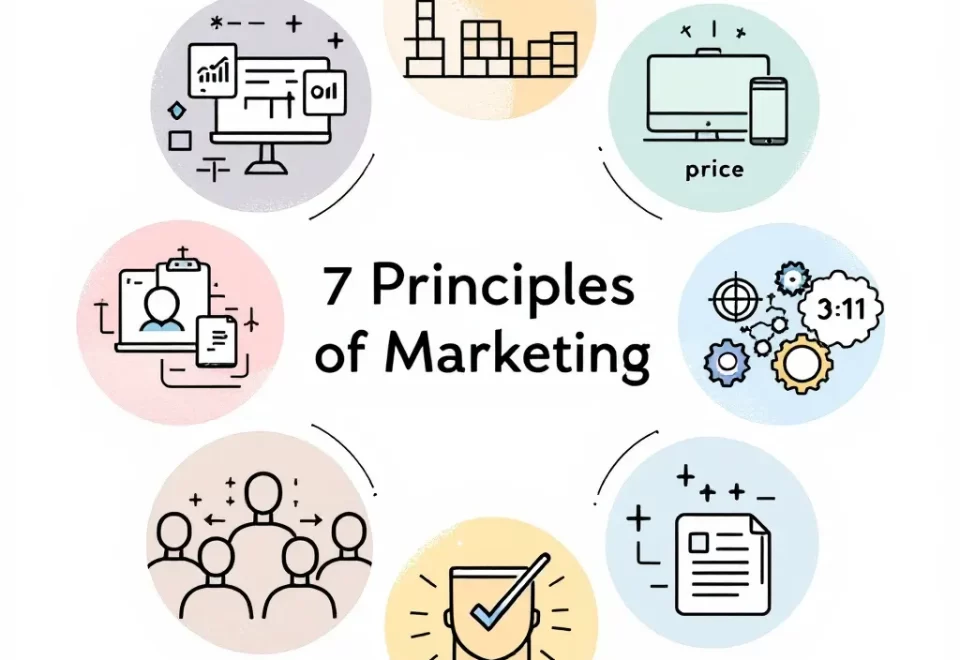In contemporary business, comprehending customers is paramount for effective management. The present era offers unparalleled ease in understanding customer needs, preferences, and behaviors, owing to advanced technologies and data analytics. With sophisticated tools and real-time insights, businesses can gain a nuanced understanding of their clientele, enabling tailored strategies and personalized experiences.
This heightened accessibility to customer insights empowers businesses to adapt swiftly, fostering customer satisfaction and loyalty. Embracing these tools is not just a convenience but a strategic imperative, as it aligns businesses with evolving customer expectations, ultimately enhancing their competitiveness in a dynamic market landscape..
Using new technologies, marketers can obtain various forms of customer data, and use this data to gain insights into customers’ pain points and preferences. These insights are quite useful when making any business decisions from product improvements to marketing campaigns and sales practices.
But taking a peek at customer data occasionally does not guarantee success. Marketers need a constant flow of data across as many touch points as possible. This is when customer tracking could solve their issues.
Customer tracking is an active form of customer data gathering and interpretation. Customer tracking tools keep customer data from various touch points flowing in, so marketers can observe changes and be more confident in the insights they gain.
Let’s learn more about customer tracking and how it can help you.
What is Customer Tracking?
Customer tracking is a business strategy that involves collecting and analyzing customer data. This strategy helps organizations understand their customers, generate insights, and predict their personal preferences and behavior.
In this approach, businesses use various tools and technologies to monitor customer-specific data points and brand interactions. This is done across multiple touchpoints such as social media, online apps, websites, heatmaps, website cookies, and gated content. This process aims to create a holistic view of consumer data and use it to generate data-driven insights.
Customer tracking can also be coupled with customer relationship management (CRM) to drive meaningful customer relationships and improve brand loyalty. You can also use this information to improve your sales funnel and marketing optimization.
As per Mckinsey’s survey, businesses that utilized customer analytics were found to make 126% more profit than their companies that didn’t use analytics. They also saw 131% more sales and a 132% increase in ROI than their competitors.
Ready to harness the power of customer tracking for smarter strategies?
Contact Growth Hackers
Benefits of Customer Tracking
Customer tracking is very important for businesses for various reasons.
Firstly, it’s a very innovative tool for improving a company’s marketing strategy. The information businesses collect by tracking their customers can be used for running targeted marketing campaigns. You can also use it to refine your personalized messaging and PPC ads.
Furthermore, information collected through feedback forms and customer surveys can be used to tailor promotional efforts toward specific demographics. You can also use this information to identify customer’s pain points and improve your business offerings. From a product point of view, you can also use this data to build recommendation systems.
What’s more, companies can also use this information to identify at-risk customers on the verge of disengagement. Your sales team can entice such customers to return to your company by offering them special discounts and support to take care of challenges proactively.
As per PWC, one out of 3 customers will walk away from a brand after only one bad experience. Furthermore, 54% of users say customer experience at companies needs improvement. Customer tracking enables brands to foster long-term customer loyalty and use it to improve their ROI.
Your organization can also use customer data to perform competitor analysis and create your Unique Selling Proposition (USP). This can be a huge advantage for companies whose product offerings are similar to their competitors, as it allows them to understand their audience and tailor their products according to customer expectations. Customer tracking thus allows you to carve your own niche in a competitive environment.
Lastly, through proper customer tracking, you can ensure that your customers comply with your security and data governance policies. This not only safeguards your operations but also enables you to improve your customer’s security. This way, businesses mitigate the risk of sharing sensitive information falling into the wrong hands.
Types of Customer Data that Companies Track
1. Behavioral data
This data is often used to understand how different customers engage with the business. You can use this information to improve your branding and elevate your marketing efforts. Specific KPI metrics include browsing patterns, purchase history, order value, and website/app interaction metrics (mouse movement, heatmaps, etc.)
2. Transactions data
This data is used to identify high-ticket customers, which can be targeted by your sales team for personalized engagement to improve their customer lifetime value (CLV). This includes metrics such as items in the shopping cart, purchase history, payment details, returns, etc.
3. Engagement data
This includes the different touchpoints brands use to interact with their customers. For example, feedback forms, customer reviews, surveys, etc. This can also incorporate email metrics such as open rate, click-through rate, bounce rate, etc.
Moreover, you can also use social media to generate a real-time pulse of customer experience, using metrics such as page visits, number of clicks, number of shares, etc.
4. Demographic information
Segmenting your audience is the key to engaging and retaining customers at scale. To understand your diverse user profiles, you must collect customer information such as age, gender, location, occupation, credit card details, etc.
Furthermore, if you’re looking to optimize your supply chain according to a particular location, you can include geographic information such as location, pincode, nearby markets, and tourist attractions into the mix. According to Statista, 37% of marketers say location data is very important for delivering relevant content to customers.
5. Device information
The kind of device a customer uses is important for understanding and targeting them. You can also use this information to optimize UI/UX to provide a seamless experience to the end-user. That’s why companies track information such as the type of device used, browser, time of day when the device is used, etc.
6. Customer lifecycle data
This data is collected to help businesses understand where a particular customer is in the customer lifecycle. This can include information such as customer engagement date, preferred channels of communication, and if they are a part of membership and loyalty programs (this can help tailor memberships to different people and demographics ).
As per Accenture, 91% of people shopped with brands that provided relevant offers and recommendations.
7. Privacy and consent
This crucial information is very helpful for distinguishing customers who have granted consent for engagement from those who have opted out of your mailing list. It also lets you track which users have consented to using their data. Lastly, it also helps your business comply with data governance regulations and create a trusting environment. It’s also important to have a clear privacy policy and use a cookie consent management platform (CMP) to stay compliant with data regulations.
Get ready to transform your strategy – start implementing powerful customer tracking today!
Common Software Used for Tracking Customer Data
Customer tracking tools function in various customer stages and touchpoints, from social media tools and marketing automation to customer support and ticketing systems. Let’s look at a few popular examples.
1. Zendesk
Zendesk is a SaaS customer support tool that gives users an overview of customer interactions. You can use this tool to track customer tickets/logs and generate insights about customer trends.
2. Hubspot
Hubspot is a very popular marketing and sales management platform that centralizes customer data and facilitates customer relationship management. You can also use it for marketing automation and data tracking.
3. Hiver
This is a Gmail-based customer tracking software that allows users to use their Gmail for customer analysis and mapping. You can also use it to generate shared workflows and segment your contacts. It also enables your business to track real-time customer feedback.
4. Hotjar
This is one of the best website tracking tools in the market that enables marketers to create heatmaps and visualize where users click and move on the website. It also allows them to record and play user sessions to track individual journeys.
5. Freshworks
This CRM tool empowers businesses by segmenting customers, gathering customer data, and scoring leads. It also facilitates cross-channel contact management, ensuring effective communication across various platforms for enhanced customer engagement and relationship building.
6. Tenfold
This tool enables you to track key metrics, perform audience segmentation, and log data in the system automatically. It also acts as a CRM software, offering its users a panoramic view of customer interactions, conversations, agent notes, and online chats.
Empowering Businesses: Harnessing Customer Tracking for Informed Decisions and Enhanced Experiences
Utilizing customer tracking tools facilitates the monitoring of diverse data types such as behavioral, transactional, engagement, demographic, and device data, along with customer journey data. By analyzing these datasets across various touchpoints over an extended period, businesses can enhance customer experiences and make informed decisions.
Delving into customer journeys and touchpoints enables a deeper understanding of preferences. Employing appropriate customer tracking tools is crucial for gaining nuanced insights, and empowering businesses to tailor strategies effectively. This strategic utilization of data not only improves overall customer satisfaction but also guides decision-making processes, ensuring businesses stay attuned to evolving customer needs for sustained success.
Growth Hackers provides outstanding data analytics service helping businesses from all over the world grow. There is no fluff with Growth Hackers. We help entrepreneurs and business owners elevate their business with powerful customer tracking, increase their productivity, generate qualified leads, optimize their conversion rate, gather and analyze data analytics, acquire and retain users and increase sales. We go further than brand awareness and exposure. We make sure that the strategies we implement move the needle so your business grow, strive and succeed. If you too want your business to reach new heights, contact Growth Hackers today so we can discuss about your brand and create a custom growth plan for you. You’re just one click away to skyrocket your business.





